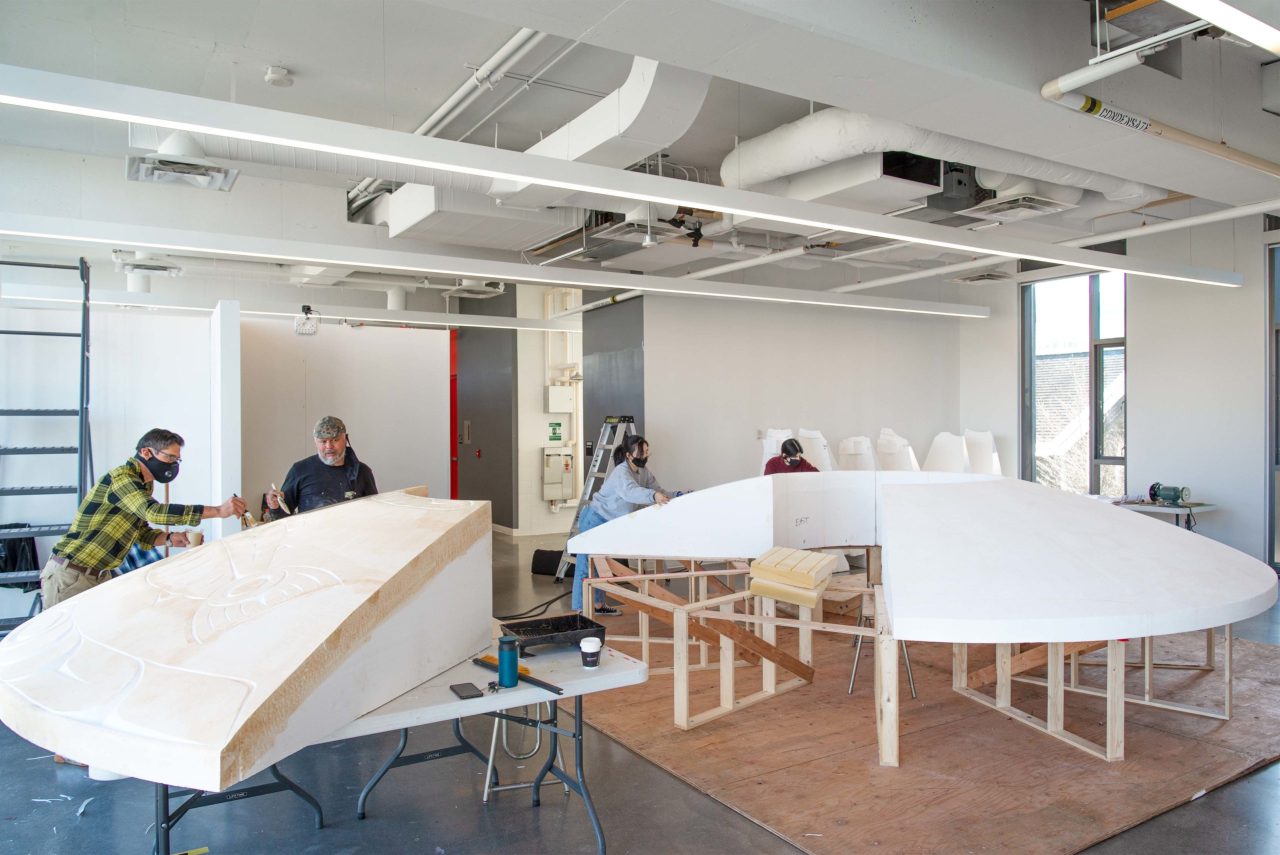Thursday 23 Jun 2022 from 4-5:30 PM
Museum of Anthropology Presentation Circle and Learning Lab, 6393 NW Marine Drive, UBC
Artist Talk: Richard Campbell
-
Kayám̓ Richard Campbell
ArtistKayám̓ Richard Campbell comes from a long line of carvers, all of whom have influenced his style, and has been carving for over 40 years in modern contemporary and Coast Salish style. He works with various woods, using mainly yellow cedar for the plaques he carves. Campbell has worked as an archaeological field assistant with the Musqueam Indian Band for over 20 years. Both occupations help him to ensure his culture lives on for future generations to come.
Read More
In recognition of Indigenous History Month and in collaboration with the Museum of Anthropology, join us to listen and learn with Musqueam knowledge keeper Richard Campbell. Campbell is a master carver with over 40 years of experience and has worked as an archaeological field assistant for the Musqueam Band for the past 23 years. Campbell will share knowledge about traditional carving techniques and the cultural significance of salmon, including how it is used and prepared for ceremonial purposes. Damara Jacobs-Petersen will introduce Campbell, followed by a screening of a short video documenting the carving process for the Bronze Disc, a large-scale bronze cast featuring salmon imagery that will be installed in sections around the base of James Hart’s Reconciliation Pole: Honouring a Time Before, During and After Canada’s Indian Residential Schools (2015-17).
This talk is free with admission to the Museum of Anthropology.
Image (above): Quarter of Bronze Disc Cast in Bronze, Burton Bronze Foundry, Salt Spring Island. Photo: Barbara Cole
-
Kayám̓ Richard Campbell
ArtistKayám̓ Richard Campbell comes from a long line of carvers, all of whom have influenced his style, and has been carving for over 40 years in modern contemporary and Coast Salish style. He works with various woods, using mainly yellow cedar for the plaques he carves. Campbell has worked as an archaeological field assistant with the Musqueam Indian Band for over 20 years. Both occupations help him to ensure his culture lives on for future generations to come.
Read More
Related
-
News
02 Jun 2022
Creating a Bronze Disc Base for Reconciliation Pole

Through a unique collaboration between Musqueam artist Richard Campbell and 7idansuu James Hart (Haida), work is underway on the production of a large-scale cast bronze disc that will be installed at the base of Hart’s Reconciliation Pole (2015-17).
[more] -
Event
1 Apr 2017, 1 pm
Reconciliation Pole Raising: Honouring a Time Before, During and After Canada’s Indian Residential Schools
Reconciliation Pole is situated on the traditional, ancestral, and unceded territory of the Musqueam people. This 800-year-old red cedar tree was shipped from the island of Haida Gwaii and is being carved under the direction of master carver and hereditary chief, 7idansuu (Edenshaw), James Hart with the helping hands of Gwaliga Hart, John Brent Bennett, Brandon Brown, Jaalen Edenshaw, Derek White, Leon Ridley and late son Carl Hart, all of the Haida Nation of Haida Gwaii.
[more]